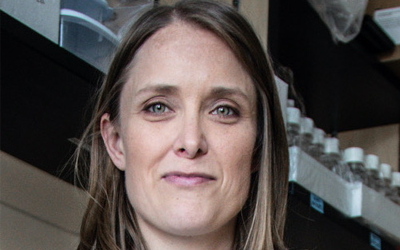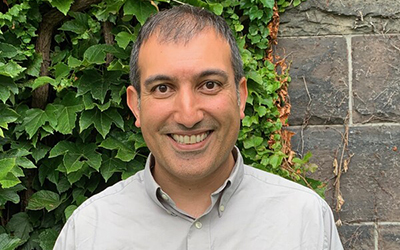Dr. Biniyam Alemayehu Ayele, University Health Network
$100,000 over 2 years, funded by Parkinson Society British Columbia through the Parkinson Canada Research Program
Project description:
Before some people with Parkinson’s disease develop dementia, they often experience minor difficulty with thinking, memory, or judgment. This state, known as mild cognitive impairment, is easy to overlook and tricky to diagnose, especially since doctors don’t have any biological markers that show up in tests.
“There is a spectrum between normal cognition and dementia,” says Dr. Biniyam Ayele, an assistant professor of neurology at Addis Ababa University in Ethiopia. “These are people in-between. You may not initially find profound forgetfulness or memory problems; you may find slow processing instead.” If doctors had a biomarker to identify people who have mild cognitive impairment earlier, that would benefit both people with Parkinson’s and their carepartners, Ayele says.
“It will help the families with managing, as well as intervening with available pharmacological and nonpharmacological therapies,” he says.
Ayele will spend the next two years of a clinical research fellowship at Toronto’s University Health Network analyzing brain imaging scans and neuropsychological tests to try to find that biomarker. He’ll comb through hundreds of imaging scans and test results already collected through the Ontario Brain Institute’s Ontario Neurodegenerative Disease Research Initiative’s (ONDRI) online database. Ayele will try to match changes that show up in the brain scans with the results of the detailed neuropsychological tests that were also collected as part of the ONDRI research program. “I’m looking for parts of the brain that could be affected in people… so we can use either the clinical tests or the imaging to diagnose them,” he says.
In addition to the structural brain changes he expects to find in the subcortical region of the brain, Ayele also hopes to identify which clinical tests are most accurate in identifying mild cognitive impairment. “If you have sensitive and accurate cognitive assessment parameters you can use to diagnose mild cognitive impairment earlier, clearly the patients would benefit from future major interventions based on these findings.”
Cognitive rehabilitation therapy, exercise, and medications like rivastigmine, donepezil, and memantine may boost people’s cognition, or prevent the progression to dementia, if given at the right time, Ayele says. As more treatments emerge, identifying people early will also be important to get them into clinical trials, he adds.
In Ethiopia, many people believe bad spirits, witchcraft, and curses cause Parkinson’s and other neurodegenerative brain disorders. The more training Ayele receives during his fellowship, the easier it will be for him to address that stigma and discrimination, he says.
Ayele’s grandmother, Yigebashal Ayele, had Parkinson’s and he was her neurologist during the last year of her life in Ethiopia. Although most people with Parkinson’s in Ethiopia don’t have access to the medications that could slow progression of mild cognitive impairment, Ayele hopes his research and advanced training will contribute to efforts to change that reality.
Reproduced with permission from Parkinson Canada.







